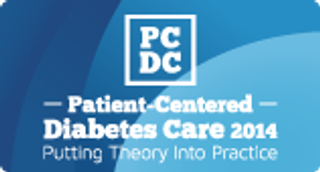
Value-Based Care
Latest News
Latest Videos

CME Content
More News




The American Journal of Managed Care publishes a first-of-its-kind study comparing different types of health insurance plans and different levels of co-payment, to see how varieties of coverage affect access to therapeutic drug classes.

A federally funded effort to identify high-risk patients and coordinate their care is delivering modest savings, but significant cost reductions may come only after broader payment reforms take hold.

As provider reimbursement begins to move toward models that favor quality over quantity, CEO compensation may be following the same path-with CEO pay determined more by quality measures than strictly by financial gains.

Quality-of-care performance means more to CEO paychecks at some for-profit hospital companies than at others.

Healthcare reform has led to a resurgence of interest in various types of population-based management tools, according to David Axene, FSA, FCA, CERA, MAAA, in his presentation Innovations in ACO Partner Risk/Revenue Sharing at the National Association of Managed Care Physicians' Spring Managed Care Forum 2014 in Orlando.

Farzad Mostashari, MD, visiting fellow, Brookings Institution, former national coordinator for health information technology (HIT), US Department of Health and Human Services, says interoperability is the concept of being able to securely exchange health information, and then appropriately understand and use it.

Neil M. Pressman, FACHE, president, Presscott Associates, discussed a variety of business models for healthcare network management in his presentation at the National Association of Managed Care Physicians' Spring Managed Care Forum 2014 in Orlando.

Providers and insurers alike know that focusing on quality and cost will be essential, especially as healthcare shifts toward accountable care models.

With the delay in ICD-10, many insurers now have to slow down a mammoth IT project and, potentially more disruptive, make adjustments to a whole slew of programs and contracts.

Leaders from the Centers for Medicare & Medicaid Services think private insurers have been too slow to adopt payment reforms, but they would be best served by adopting value-based payment systems in tandem with CMS today.

Lee Newcomer, MD, MHA, of Oncology, Genetics and Women's Health for UnitedHealthcare, says the National Comprehensive Cancer Network is transforming genetic testing by utilizing a tool called the NCCN Biomarkers Compendium, which encourages evidence-based decision-making.

The Obama administration's top Medicare official is stepping down from his post. CMS Principal Deputy Administrator Jonathan Blum has been with the agency for more than five years.

Current healthcare payment systems in the United States are all plagued by the problem of adverse incentivization. A more efficient system would be one which leaves billing entities uncertain of how a given patient encounter will be reimbursed.

As the structure of the healthcare system changes rapidly, patient-reported outcomes provide clinicians with a different set of tools for promoting health.

Cancer survivors often encounter a variety of health issues, the most common of which include fatigue, peripheral neuropathy, and depression. To address those specific issues, the American Society of Clinical Oncology (ASCO) has developed 3 new sets of guidelines on cancer survivorship care.

Simply put: When you're under observation, you're often less insured.

The Obama administration's timeline for having ready the new healthcare law's online sign-up system "was just flat out wrong," outgoing Health and Human Services Secretary Kathleen Sebelius said in an interview that aired Sunday.

EHRs - and the data they hold - are critical to succeed in population health, but they're not enough.

Karen DeSalvo, MD, the national coordinator for health information technology has proposed that ONC become more forward-thinking.

Robert A. Gabbay, MD, PhD, chief medical officer and senior vice president, Joslin Diabetes Center, says that there are opportunities for treating diabetes within accountable care organizations (ACOs).

Supporters point to advances such as greater takeup of EHRs by doctors, though critics say federal policymakers pushed technology long before it was ready.

Just over half of the 114 organizations to join one of two Medicare accountable care organization efforts in 2012 report no decrease in health spending below targets during their first 12 months.




















